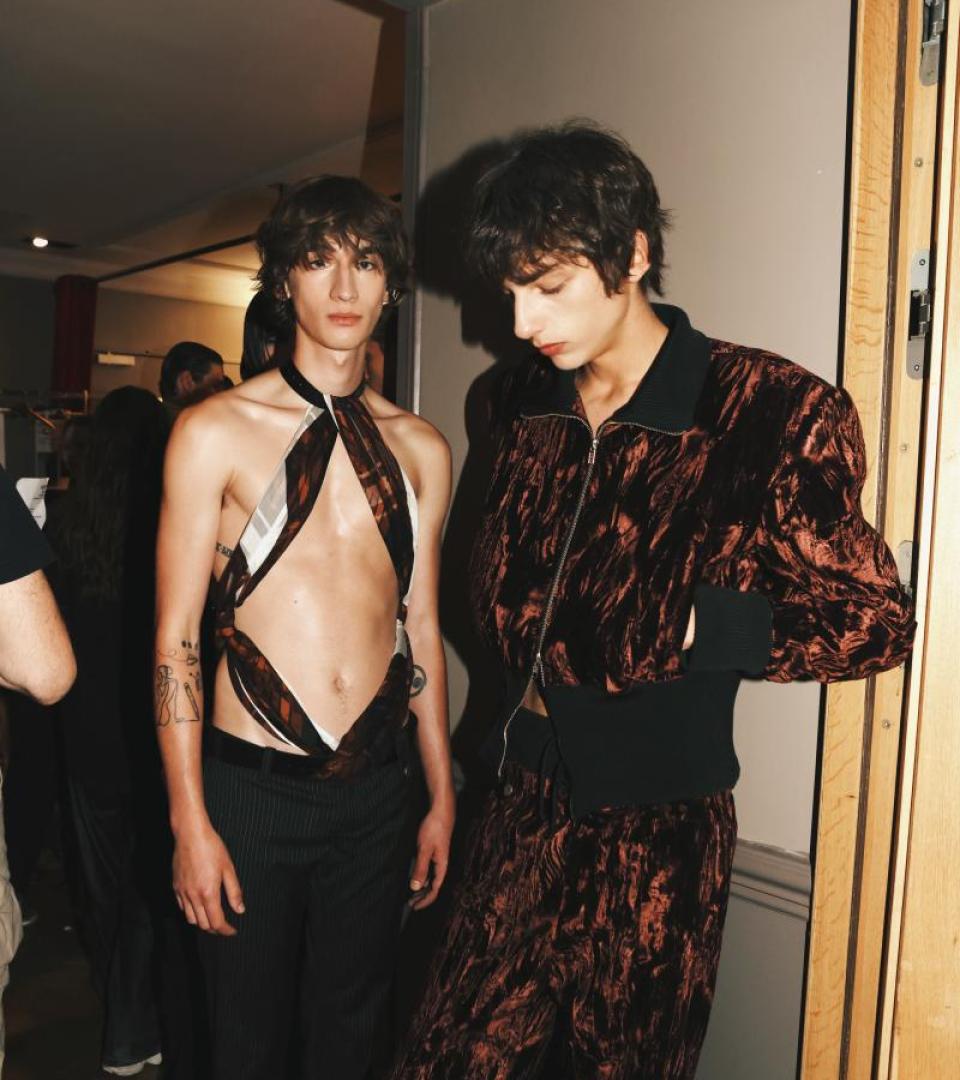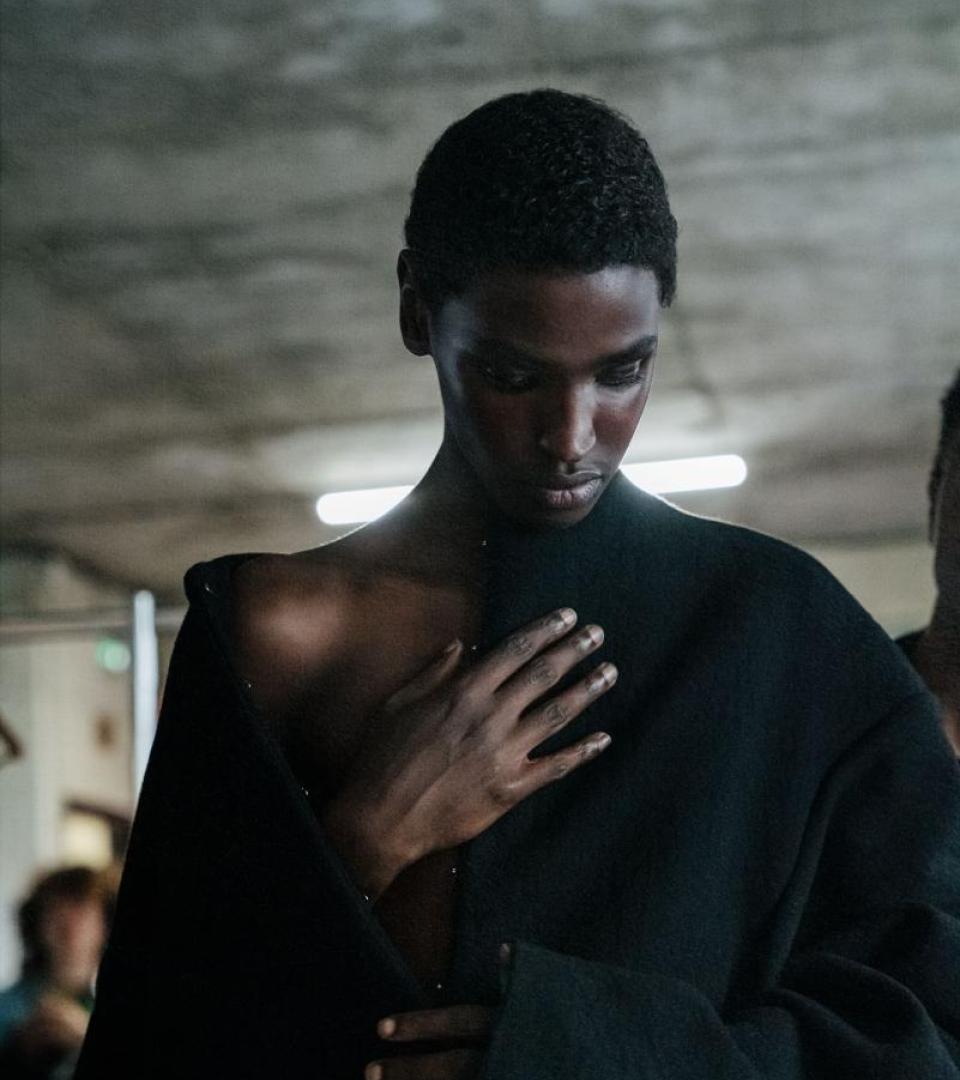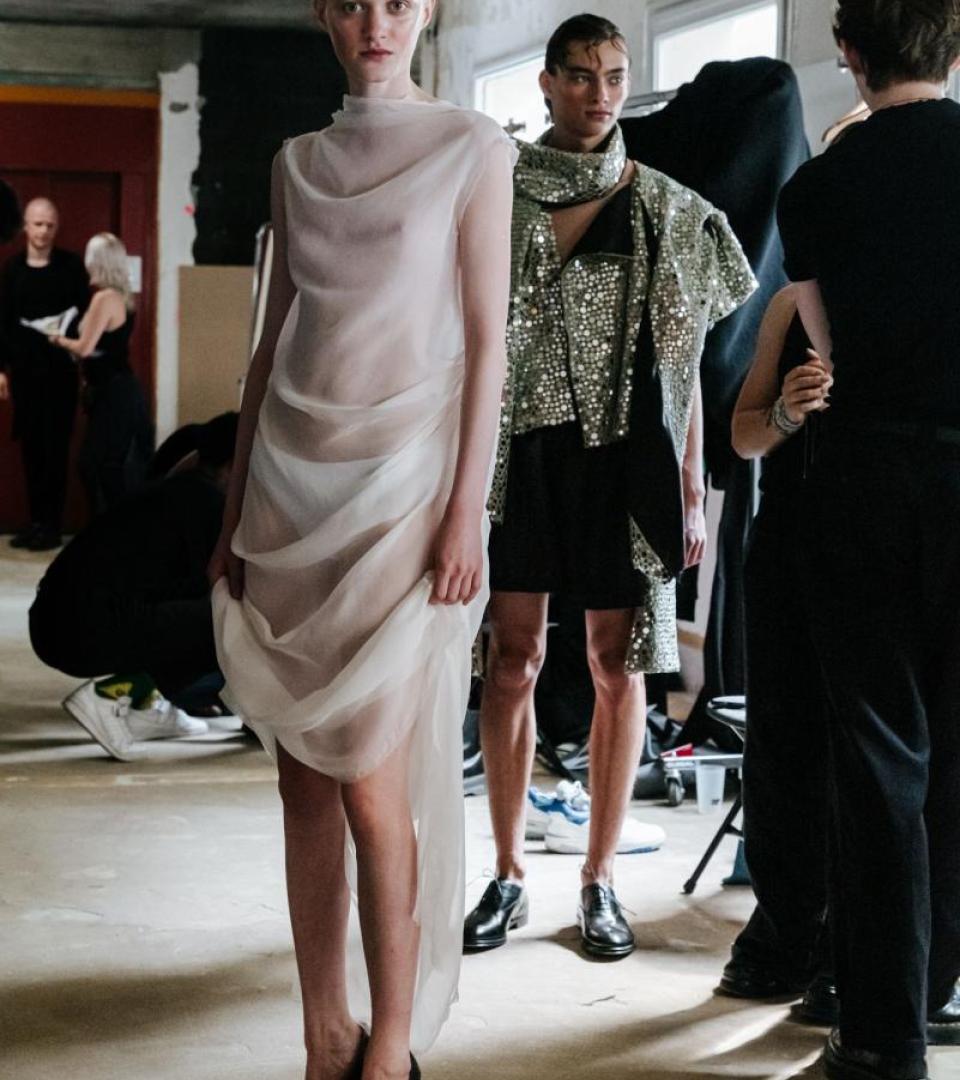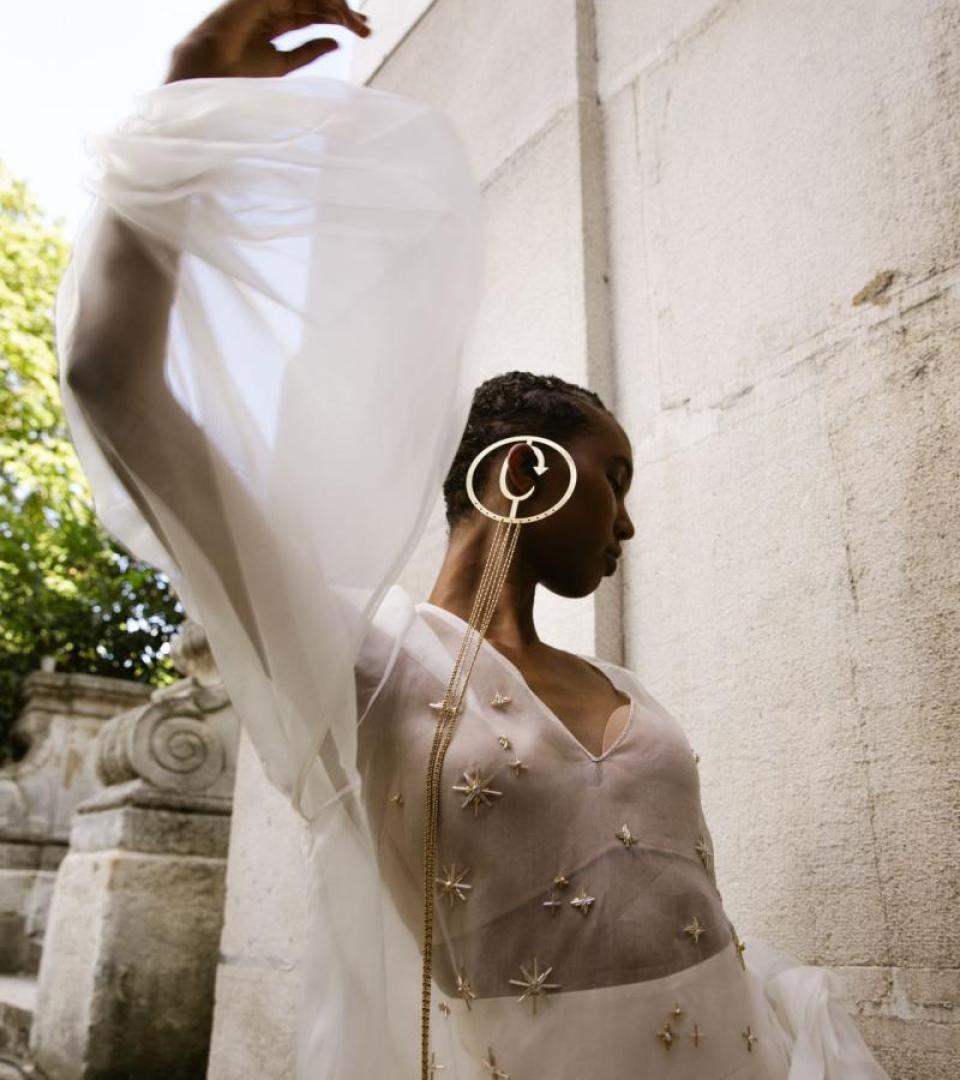How have your projects in hospitality, fashion, and design proven complementary?
The creative industries, for better or worse, are evolving at such a pace that everything is becoming homogenised. I feel that fashion hegemony is fading, giving way to a circle of diverse inspirations. Now, it can be anything. Nowadays, I find myself more inspired by art and design when I curate a project than by fashion itself – though I do love making analogies with brands, especially in hospitality. In the end, creativity is a vehicle to deliver an emotion, something to say. I approach all projects with the same question: what is the feeling we want people to express, and what do I want to convey?
What excites you in fashion right now?
What excites me is also what scares me: the future is difficult to predict. Fashion is becoming quite binary, split between fast fashion and luxury. I feel it’s a shame, as small designers seem to struggle. On the other hand, many new talents are blossoming and taking over beautiful houses. I’m eager to see Quira at Calvin Klein, for instance.
What is one reason to be optimistic about the state of fashion going forward?
The resurgence of the importance of craftsmanship. When I see Loewe or Bottega, I feel very connected to their global approach to luxury. It’s about special techniques, enhancing craftsmanship, raw talents, and pushing the boundaries of creativity. People seem to respond positively and understand this. Recent events, like the Galliano show or memes criticizing the state of fashion, also tell me that people are fed up with micro-trends and that we may be returning to what fashion should always be: making us dream.
In what ways do you think AI might benefit fashion?
AI is a tool, and like any tool, it needs to be mastered and balanced. Hopefully, it will enhance creativity if used carefully. I already work with AI a lot. It helps my team delve deeper into technical aspects that we couldn’t explore before.
Who or what will drive the greatest change in fashion this year?
Liberation! People are seeking freedom. Recent years have restrained many talents. I believe that those who don’t play by the new standard rules will be the winners.
What impact might you hope to have on fashion this year?
I’m launching two new projects in September, which are really important to me. It would be pretentious of me to forecast any impact I might have, but I will try to be as genuine and authentic as I can be.
Can you suggest a fashion mantra for ’24?
I’ll quote Madonna: “Express yourself, don’t repress yourself.”
This interview has been lightly edited.



